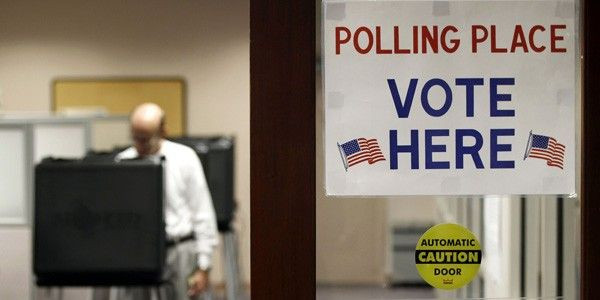Massive Voting Registration Issues Identified in New Study

People registered to vote in multiple states; people remaining on official voting rolls after they have died; people denied access to the ballot box because of a misspelled name or mismatched address.
These are a few of the implications of widespread flaws in voter registration identified in a new study by the Pew Center on the States. Most election offices collect data through handwritten paper forms mailed in by voters. Inundated officials are unable to keep pace, voters neglect to send notice when they move, and errors abound.
Voter registration in the United States largely reflects its 19th-century origins and has not kept pace with advancing technology and a mobile society...At a time when government budgets are significantly strained, our antiquated paper based system remains costly and inefficient, the report's authors wrote.
Some of the results are staggering. The study found that 24 million registrations -- one in eight -- are no longer valid or accurate, more than 1.8 million deceased Americans are listed as active, 2.75 million Americans have active registrations in more than one state and 12 million records contain an inaccurate address.
A registration system rife with such inaccuracies could drastically alter the results of upcoming elections. A study of the 2008 election estimated that 2.2 million eligible voters were turned away because of flawed registration data.
In addition to creating barriers to voting, the cumbersome system is unnecessarily costly, the report found. Oregon and Wyoming are spending an average of $4 per voter to maintain their databases; by contrast, Arizona's massive Maricopa County saved some $1 million over five years by switching to online voter registration.
The Help America Vote Act, passed in the wake of the 2000 presidential election debacle, compelled states to establish databases of voter records. The next step, some voting experts say, would be establishing a way to match data in state voting registration databases against information contained in databases like Social Security death records and motor vehicle registries.
Most other countries in the world the government takes the lead in registering voters and tracks them as they move around the country and that's not what the United States does, said Michael McDonald, a professor of politics at George Mason University who studies the electoral system. Ultimately, if we really want to tackle this problem in a robust and systematic way, we would create a national voter registration database but we're a long ways from that politically in the United States.
In the last few years, Republican-controlled state legislatures have passed a raft of stringent new voting laws aimed at preventing fraud over the loud objections of critics - including the charge these are thinly veiled attempts to disenfranchise low-income and minority voters. The proliferation of dead and duplicate voters on the rolls presents a sliver of a chance for fraud, experts say.
One of the concerns about having deadwood on a registration list is that if someone wanted to commit voter fraud, they could use that name and potentially use it undetected because the potential voter is not going to show up and stop them, said Charles Stewart, a professor of political science at the Massachusetts Institute of Technology who studies elections. So if there were a more efficient yet failsafe mechanism to cancel registrations of someone who has moved, that would be the best solution.
Still, the tiny number of recorded cases of fraud is miniscule compared to the numbers marshaled by the Pew study. Cleaning up the rolls carries more urgency than tightening voting requirements, said Lawrence Norden, acting director of Democracy Program at Brennan Center for Justice, an organization that advocates voting reform.
Things like requiring government-issued photo identification that a lot of people don't have don't solve all those problems with the registration rolls, Norden said. It seems to me that the solution is fixing the registration system rather than coming up with all other kinds of solutions that end up disenfranchising people.
© Copyright IBTimes 2025. All rights reserved.





















